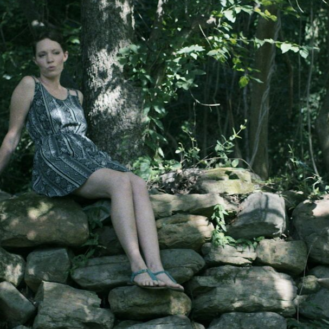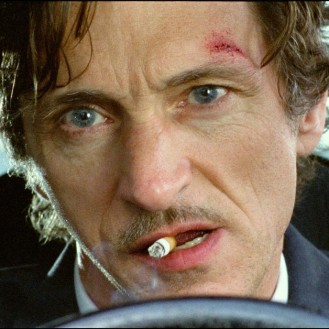Directed by Ryan Andrew Hooper and written by Mark Redd, Tollbooth is a slow-burning thriller with a darkly comedic twist — and a payoff that’s well worth the wait.
Michael Smiley (Gunpowder Milkshake, Rogue One: A Star Wars Story, The Lobster) is a tollbooth operator on a quiet stretch of road in rural Wales. For nearly thirty years, he has manned his booth alone: reading novels and hiding from his criminal past. But when his cover is blown, his old enemies set out to settle a score. Meanwhile, a local traffic cop, Catrin (Annes Elwy), finds more than she bargained for when she investigates a series of armed robberies.
Framed by an interview between Catrin and the tollbooth operator, the events of the film take place over a single day and are told out of chronological order. It takes most of the first act for Tollbooth to find its footing. While the initial temporal shifts were rather disorienting, once the film settled into a rhythm, I enjoyed the non-linear narrative and felt that it worked well in terms of both pacing and story.
A major theme is storytelling and mythologizing, and the line between truth and fiction is frequently blurred. Within his sleepy Welsh town, the tollbooth operator is somewhat of a mythological figure, the subject of stories and speculation. His own storytelling is prone to digression and obfuscation, making him an entertaining, but less-than-reliable, narrator.
The tension between the ordinary and the mythological, between truth and fiction, plays out elsewhere as well: a local, small-time crime boss with a second career as an Elvis-impersonator, a gang of bumbling farm kids on a mission to build a viral reputation for violence. Even the tollbooth itself exists on the axis of the mundane and the fantastic. On the surface, it’s the quietest tollbooth in Wales, but, like its unassuming operator, there’s more to it than meets the eye.
Redd’s script is a treasure-trove of comedic banter, and Hooper’s direction offers more than a few nods to gangster, western, and crime classics without getting bogged down in its own references and influences. For a feature debut, it demonstrates considerable skill and restraint, as well as a keen sense of irony and humour. The social commentary isn’t exactly subtle, but it’s deftly handled and nicely interwoven into the broader setting and characterization enough that it never detracts from the pacing or thematic development.
Throw in some slick editing and a few perfect, gasp-inducing shots and you’ve got a fresh and engaging crime flick.
**********
Do You Tweet? Follow These Tweeple:
Shannon Page: @ShannonEvePage





Be the first to comment